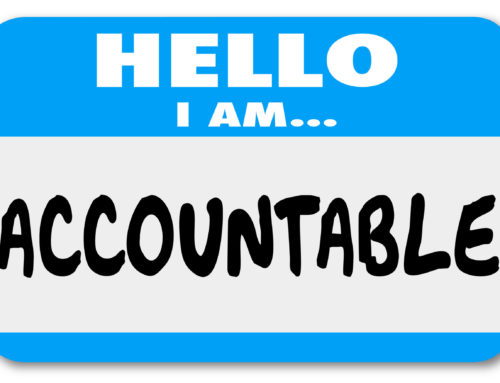BUPA has sent correspondence recently, advising of changed terms for ancillary providers. This brief commentary addresses the effect of the terms and conditions.
This Commentary is not legal advice. If you have a dispute with a health fund or with HICAPS, then you should seek legal advice about your particular circumstances.
HICAPS
I have included a section on HICAPS as the intersection of their contracts and health funds is often not clear.
HICAPS is a wholly owned subsidiary of the National Australia Bank.
When you contract with HICAPS as a health practitioner, you are NOT contracting with the health funds. You are agreeing to various terms and conditions for electronic payment. Only HICAPS can enforce the terms of the agreement with you. The health funds cannot enforce an agreement to which they are not a party.
Of course, the HICAPS agreement has terms and conditions that you must meet for you to be ‘paid’, but ultimately it is an agreement for funds processing and payment.
Health Funds might correspond with you and tell you what the HICAPS terms and conditions are including but not limited to the provision of patient records for audit and assessment.
If you were not to provide these records, that could be a breach of the HICAPS agreement, and then the Health Fund might seek to cease allowing you to use the HICAPS terminal for that particular fund. The HICAPS system can only work if all of the agreements between the parties are in place.
Of course you are not a party to or privy to the agreement with HICAPS and the individual Heath Fund but it can be presumed that agreement has terms that allow the individual Health Fund to cease payments through HICAPS for particular funds and practitioners in certain circumstances.
You do not have to use HICAPS of course – there are other providers (or there were) and in any event, you ask your patients to claim electronically after their visit which can often be done by mobile App quite simply. But of course some patients – sometime fickle – might query why you don’t have HICAPS and take their business elsewhere.
ANCILLARY PROVIDER TERMS
In the old days, an account was presented and the health fund paid. Unless the provider was in some way unacceptable to the fund because of – for example misconduct or a dispute – then payments were made as a matter of course.
But electronic claiming makes it very easy (and tempting) to look at the data. This makes compliance assessment easier.
With HICAPS there is a lot of very accessible data for the Health Funds to examine. Health Funds it can be assumed want to stop inappropriate claims overpayments, unsubstantiated claims or fraudulent conduct.
“Contracted Providers” with Health Funds have all sort of binding enforceable terms for their “preferred” status.
But what about the dentist who is just fee for service and merely provides item numbers for benefits/rebates?
There have been Ancillary Provider Terms for many years with many funds.
However what is the effect of these Terms and how do they work ?
It is well established that there has mostly been deemed to be no contract in these “non contracted” circumstances between the dentist and the Health Fund.
That is that the patient and the dentist have a contract and the patient has a contract with the Health Fund (largely set out in the fund rules -the BUPA Rules by way of example are 621 pages). These are separate agreements.
Practically, the Heath Fund and the patient contract might provide for example:
Recognised Practitioner means a health care practitioner other than a Medical Practitioner in respect of whom we will pay Benefits for Treatment provided by that practitioner. We have sole and absolute discretion in determining if someone becomes or remains a Recognised Practitioner and for which of their Treatments we will pay Benefits.
Who is a recognised practitioner is a matter for determination by the Health Fund. The Health Funds sometimes determine that to be a Recognised Provider you must do certain things.
It is perhaps de facto accreditation in that they determine if you are to be recognised. If you meet the criteria, then your patients can receive a benefit – a rebate – for the treatment which they have received from you.
The current BUPA correspondence does not ask for a written agreement. It is an ‘opt out’ provision.
If you agree with the new Terms you don’t have to do anything, and they’ll automatically apply from 1 February 2021.
If you don’t agree with the new Terms, just give us written notice that you wish to end your relationship with Bupa and of course the Terms won’t apply. (Do keep in mind that Bupa customers will be unable to claim for treatment you provide.)
It is notable the correspondence says – ‘end your relationship’ – not ‘end your agreement’.
There seems to be no application to be a Recognised Provider to be made for most health funds.
So, on this basis, a health fund could ‘de-recognise’ a provider – as they always could although there is no written contract. This is simply an expansion of the terms of recognition.
WHAT SHOULD I CHECK IN THE TERMS ?
These terms are for all ancillary providers from Dentists to other alternative therapists.
But you should check that you do comply with all of the clauses including and not limited to the following to ensure recognition is continuing:
- Telehealth Privacy (Clause 6);
- Handling Information (Clause 7);
- Clinical Records (Clause 8) including fireproofing of paper records;
- Consent (Clause 8 and Clause 11);
- Claims Verification (Clause 9) on two (2) days’ notice;
- Accounts records (Clause 10).
Suspension and termination are provided for at Clauses 14 and 15.
Much of the terms are analogous if not more specific than those in relevant laws, codes of conduct and ADA policies.
Some practitioners may not be strictly compliant with the terms presently. And such compliance can really only be determined by audit and examination of records for example.
If recognition is threatened to be suspended or terminated, then seek appropriate advice.
If an investigator presents to examine records, satisfy yourself as to their bona fides. Politely ask to see authorities and identification and ensure only the requested records are available and that they are in fact documents and information of BUPA patients.
You could have valid concerns about their right to examine patient records in general and other aspects of your practice.
You might seek advice about the legality of the audit and investigation process.
Be cautious about patient privacy at all times. Seek advice if you have concerns.
Practitioners must be aware that the patient rights are more important than a Health Fund’s interests and at times they might conflict. If you are unsure, seek appropriate advice.
Ultimately many practitioners will not have a treatment profile that is such that an investigation is warranted. But this is a clear indication that if your treatment profile varies significantly from a ‘norm’ then these are some of the criteria that will be used to assess recognition compliance.
Brad Wright
January 2021 (Last Updated 26th January 2021)
Liability limited by a Scheme approved under Professional Standards Legislation.





